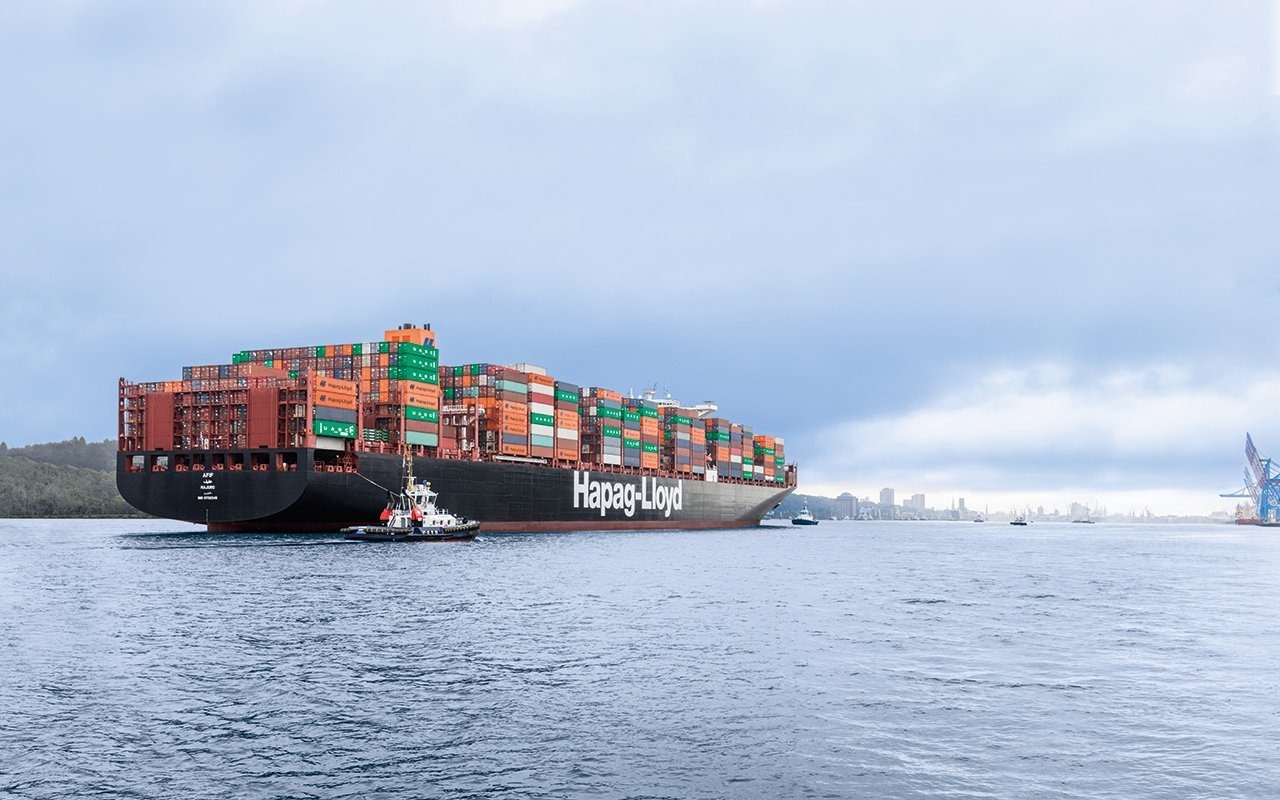
With general average still in the process of being settled on the Ever Given, shipping company Evergreen has declared general average on another vessel, the Ever Forward.
Almost a year to the day since the grounding of the Ever Given in the Suez Canal, Taiwanese shipping company Evergreen has again run into problems with one of its ships. The container carrier Ever Forward got stuck in Chesapeake Bay, outside the main channel, as it was leaving Baltimore for Norfolk on 13 March.
With a capacity of around 12,000 TEU, it is a very big ship in terms of ship reception conditions on the east coast of the United States, particularly in Baltimore, which is a relatively old, under-equipped port with limited towage capacity.
Different priorities
The vessel was refloated on 17 April and sent to Annapolis for inspection. But before that, on 31 March, Evergreen declared general average after two unsuccessful attempts to refloat the vessel. This very specific maritime law provision allows shipping companies to call cargo owners to the rescue to help them restore a ship to the same level of seaworthiness it had before it reported a casualty. The Taiwanese company used this same provision when the Ever Given ran aground.
In the case of both ships, general average was declared after several attempts had been made to refloat them, using local tugs with limited pulling power. The methods used to resolve the problems posed by the two groundings were radically different, however.
1/ Pollution risk
Chesapeake Bay is a highly sensitive area from the touristic and ecological point of view, particularly with regard to its fauna and flora. The risk of breaching the vessel's hull below the waterline during towage operations could not be envisaged in the case of the Ever Forward. We should remember that that the Exxon Valdez disaster has had a lasting effect on public opinion in the United States.
In the case of the Ever Given, a completely different approach was taken. The risk of pollution was certainly taken into account, but it was secondary and easier to manage, because of the topography of the site. In Chesapeake Bay, a fuel leak would have been dramatic and soon out of control.
2/ Degree of urgency
In the Ever Given affair, the absolute priority was to clear the Suez Canal, a vital point of passage for world trade, by whatever means required and, above all, as quickly as possible. The Ever Forward, on the other hand, was not in a shipping channel and was not obstructing the movement of other vessels. The American coastguard has therefore opted for the most expensive solution and the one which offers the least risk. Cargo owners will contribute to the cost, which is the whole point of general average…
The solution involved unloading 500 of the 4,964 containers aboard the vessel, using floating pontoons equipped with cranes. The containers were loaded on to barges which shuttle from the site of the ground to the port of Baltimore. The operation was carried out only during daylight hours.
3/ Volume
A small ship represents a small problem, and a big ship represents a big problem… This dictum has once again turned out to be true. In the first place, the Ever Forward was carrying a much smaller volume of cargo than the Ever Given. In the second place, its smaller size meant that there were more technical options for salvaging it.
Similarities
1/ Speed
At the moment of impact, both vessels were travelling at the same speed of 13 knots. This high speed indicates that the crews were attempting to get the vessels manoeuvring again after having discovered they had a navigational problem.
2/ Training and competence
Without wanting to anticipate the results of the investigation currently taking place, the Ever Forward had no engine or steering problems at the moment of impact. It simply should not have been where it was. In the case of the Ever Given, climatic conditions apart, there was also talk of human error, although the investigation is looking into the role of the pilots, as well as that of the crew.
A more commonplace occurrence one might think
Since the same causes have the same effects, no major shipping company can claim not to be exposed to the risk of a grounding. We are not looking here to point the finger at a renowned shipping company, which is itself the main victim of these two groundings.
Surprising thought it might be, it is important to understand that a grounding is a relatively commonplace type of shipping accident. Often, the problem is resolved at relatively little cost and there is no need to declare general average, with the exceptional costs it entails.
Many groundings are not even mentioned as part of day-to-day merchant shipping activity. Today, however, it is more difficult to hide such incidents, since the Marine Traffic Automatic Identification System allows ships to be geolocated in real time and can provide evidence of errors made by their crews…

Jérôme de Ricqlès
Shipping expert
Our latest articles
-
Subscriber 3 min 24/02/2026Lire l'article -
Hapag-Lloyd - Zim: a shipping deal with geostrategic implications
Lire l'article -
European road freight: the spot market is stalling
Lire l'article


